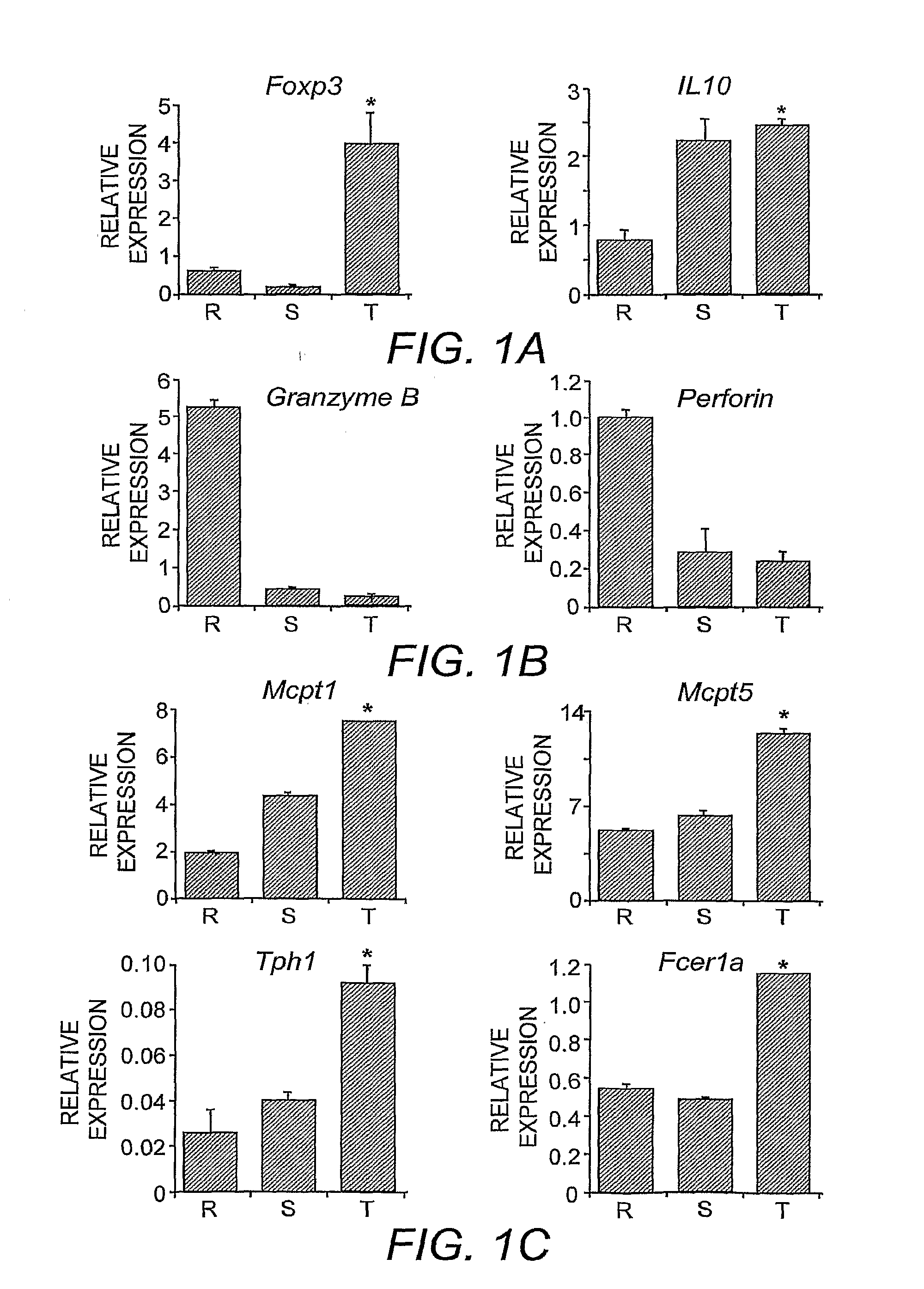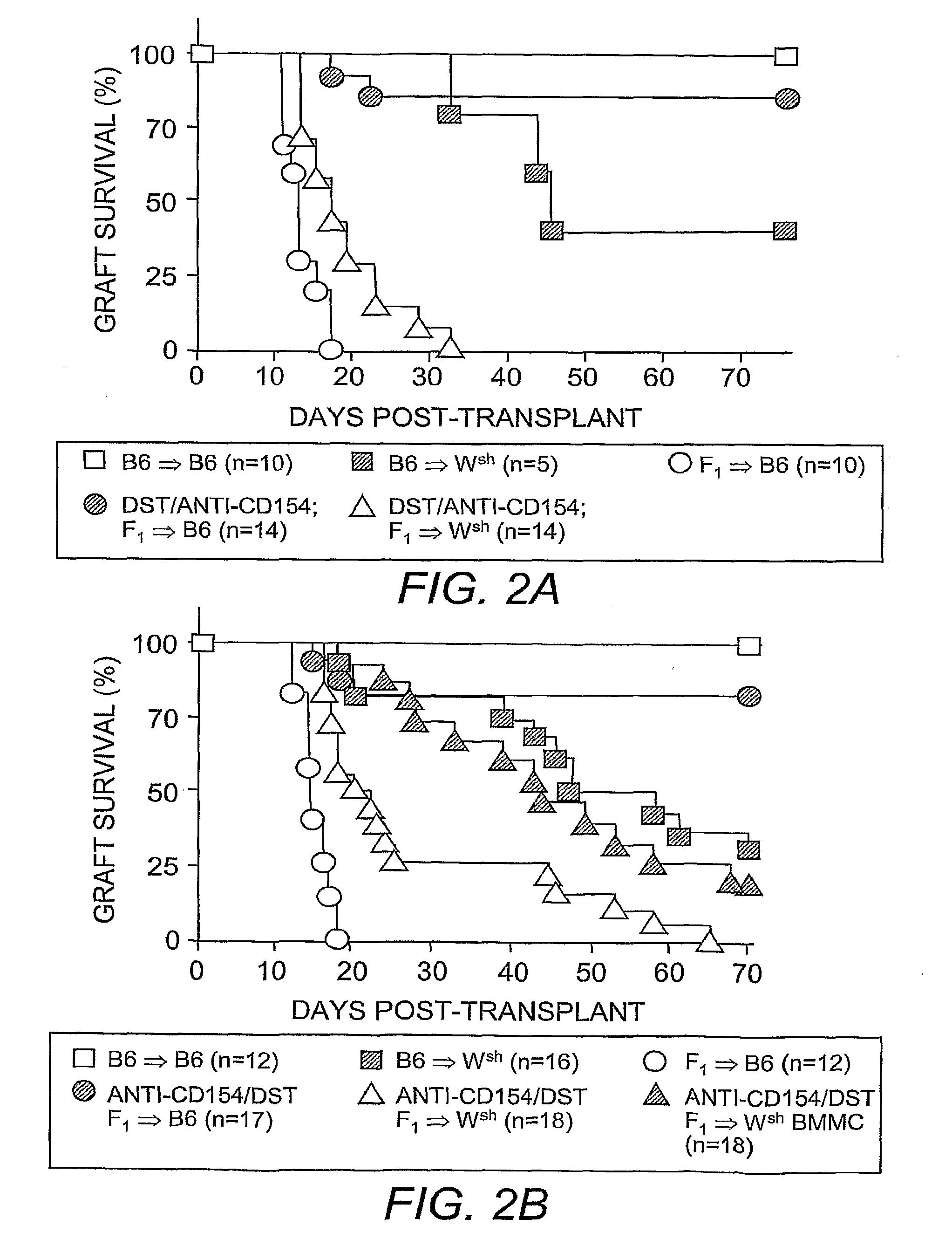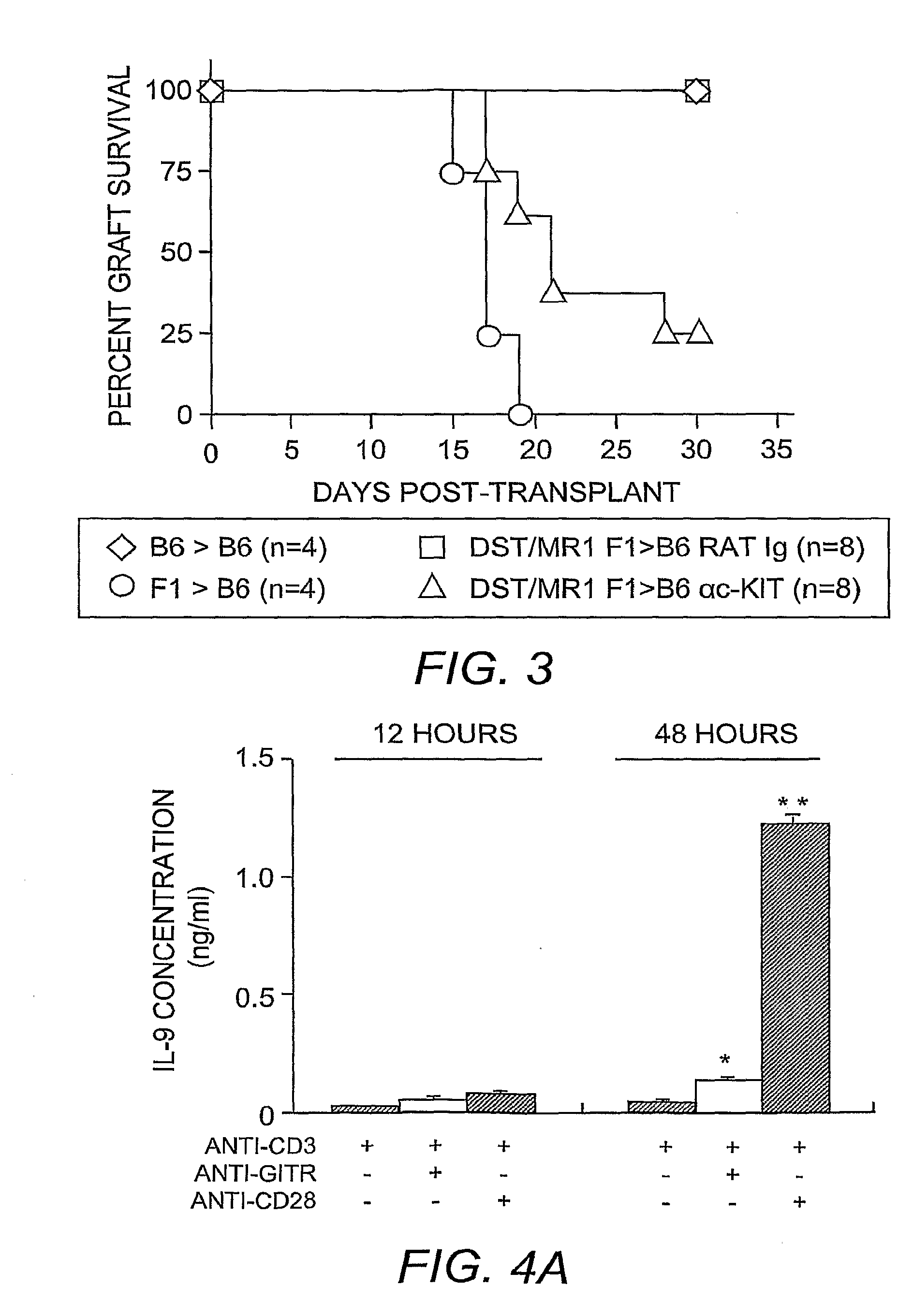Method for Modulating Inflammatory Responses
a technology of inflammatory response and modulation method, which is applied in the direction of antibody medical ingredients, drug compositions, immunological disorders, etc., can solve the problems of affecting the rejection of grafts, and delay markedly, so as to enhance the immune response to vaccines, and increase cell and humoral immunity
- Summary
- Abstract
- Description
- Claims
- Application Information
AI Technical Summary
Benefits of technology
Problems solved by technology
Method used
Image
Examples
example 1
Expression Profiling
[0054]To facilitate comparisons with established expression profiles of Treg cells, standard growth and activation conditions were employed (McHugh, et al. (2002) supra). Briefly, fresh isolated Treg cells (−96% positive) were inoculated at 106 / mL into complete RPMI medium supplemented with 1 0% fetal bovine serum and 100 units IL-2 in a 24-well plate precoated with anti-CD3 with or without anti-GITR (DTA-1) (Shimizu, et al. (2002) supra). The cells were cultured at 37° C. for 0, 12 and 48 hours, RNA was purified and subsequently analyzed using an Affymetrix® mouse genome A430 oligonucleotide array (Affymetrix®, Santa Clara, Calif.).
[0055]By comparing the data from resting or activated CD4+CD25+ T-cell groups, gene expression patterns were found to be similar to those established in the art (Gavin, et al. (2002) supra; McHugh, et al. (2002) supra). To identify genes regulated by GITR signaling, gene expression profiles were compared between the different cell pop...
example 2
Mice
[0056]C57BL / 6, CB6F1 (hybrid of C57BL / 6 and BALB / c), C57BL / 6 KitW-sh; KitW-sh (Wsh) and C57BL / 6 Rag− / − mice were purchased from the Jackson Laboratory (Bar Harbor, Me.). In all skin transplantation experiments, Wsh mice were at least 8 weeks old before grafting, to ensure mast cell deficiency (Yamazaki, et al. (1994) supra). All animals were maintained in a pathogen-free facility.
example 3
Skin Grafting and Immunization
[0057]Skin grafting was performed following established procedures (Quezada, et al. (2005) J. Immunol. 175:771-779). In brief, full-thickness tail skins from CB6F1 (F1) donors were transplanted onto the dorsal area of age-matched C57BL / 6 recipients. Seven days before skin grafting, 4×107 T-cell-depleted splenocytes from an F1 donor were transferred into recipients through intravenous injection along with three injections of 250 μg anti-CD154 monoclonal antibody (clone MR-1) on days −7, −5 and −3 to induce allograft tolerance. For TReg cell depletion, 250 μg of anti-CD25 antibody (clone PC61) was administered through intraperitoneal injection 4 days before skin grafting. For blocking IL-9 activities in vivo, 200 μg of neutralizing anti-IL-9 antibody (clone MM9C1; Khan, et al. (2003) Infect. Immun. 71:2430-2438) was administered through intraperitoneal injection every other day throughout the duration of the experiments. Control recipients received identi...
PUM
| Property | Measurement | Unit |
|---|---|---|
| Time | aaaaa | aaaaa |
| Time | aaaaa | aaaaa |
| Area | aaaaa | aaaaa |
Abstract
Description
Claims
Application Information
 Login to View More
Login to View More - R&D
- Intellectual Property
- Life Sciences
- Materials
- Tech Scout
- Unparalleled Data Quality
- Higher Quality Content
- 60% Fewer Hallucinations
Browse by: Latest US Patents, China's latest patents, Technical Efficacy Thesaurus, Application Domain, Technology Topic, Popular Technical Reports.
© 2025 PatSnap. All rights reserved.Legal|Privacy policy|Modern Slavery Act Transparency Statement|Sitemap|About US| Contact US: help@patsnap.com



